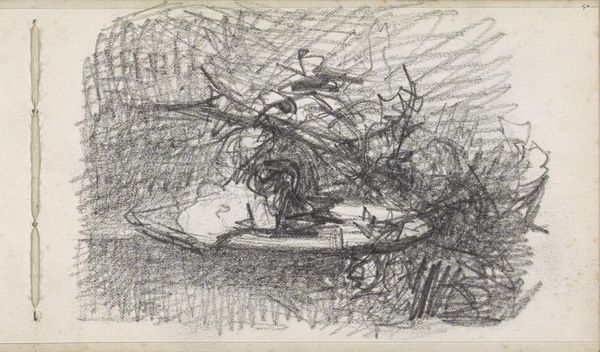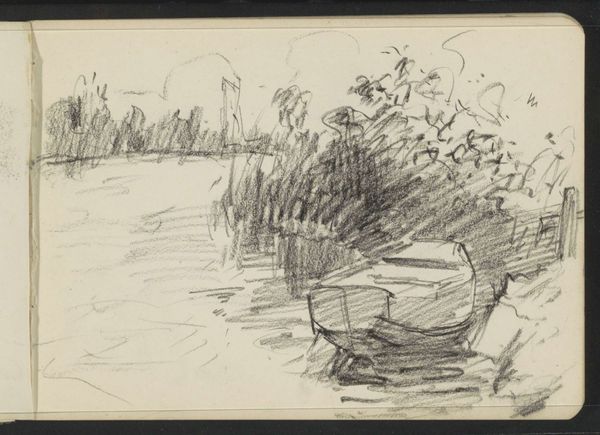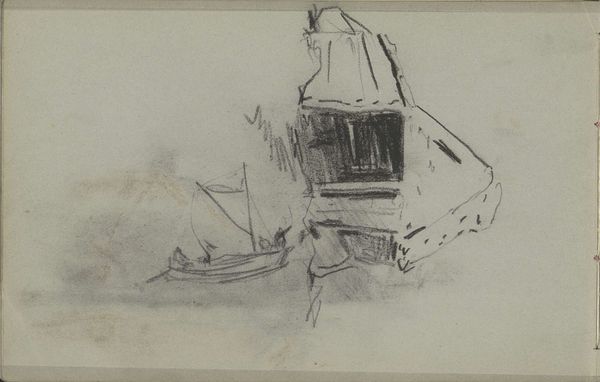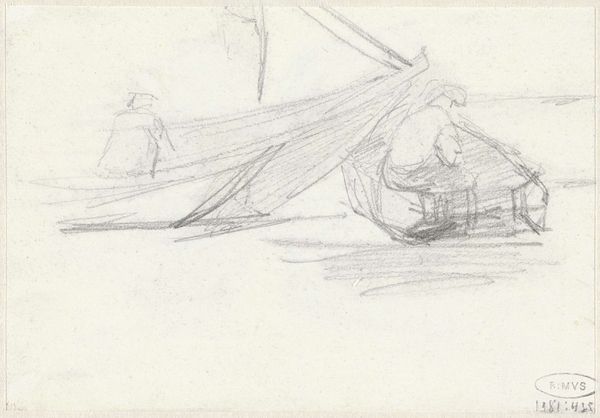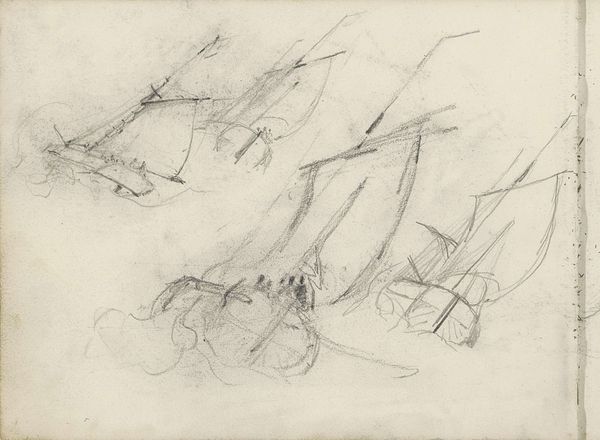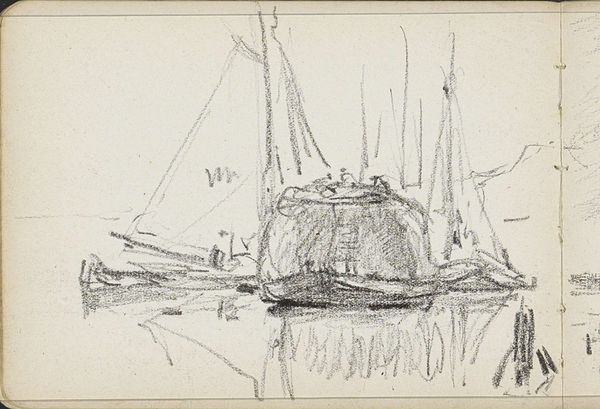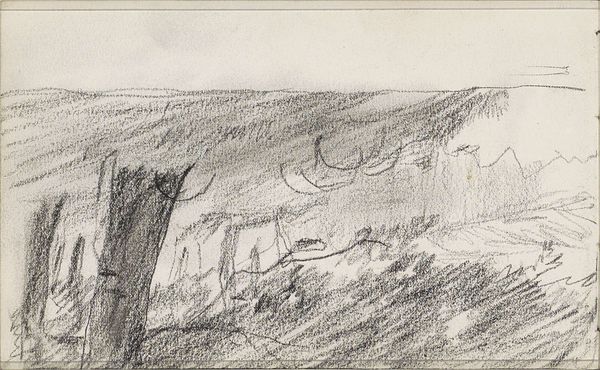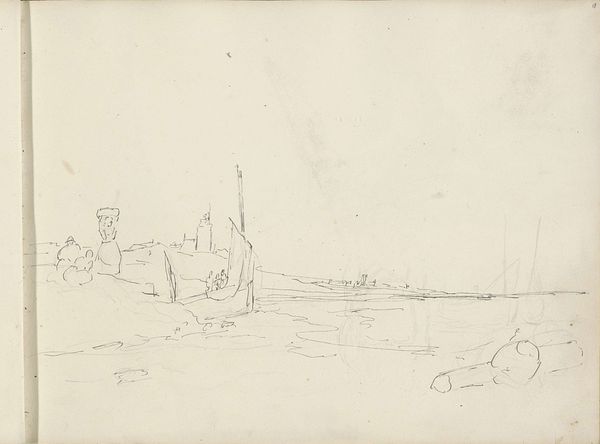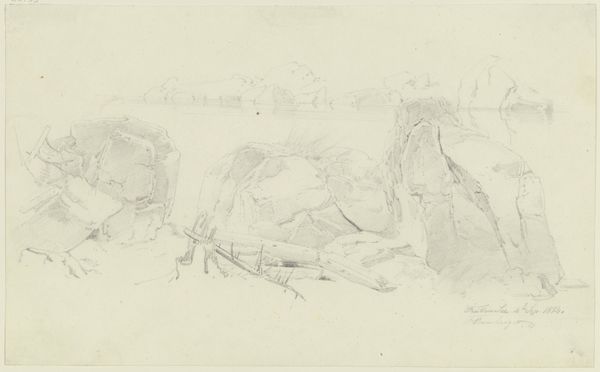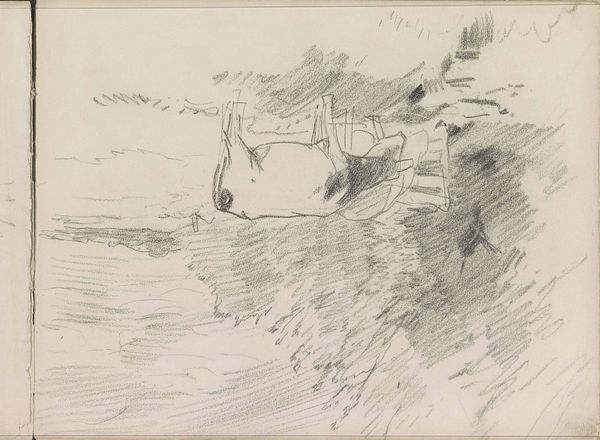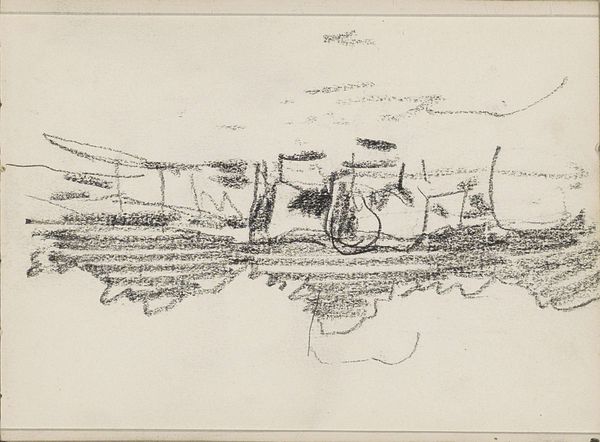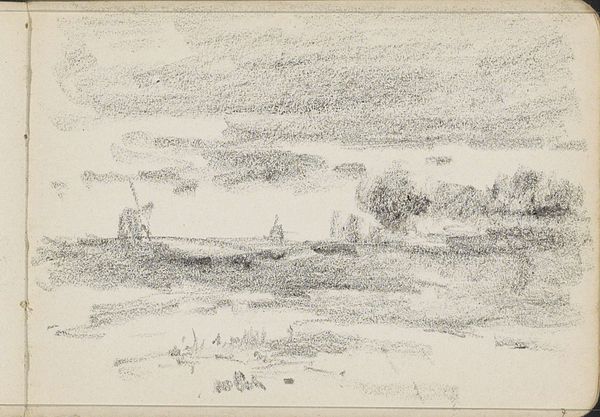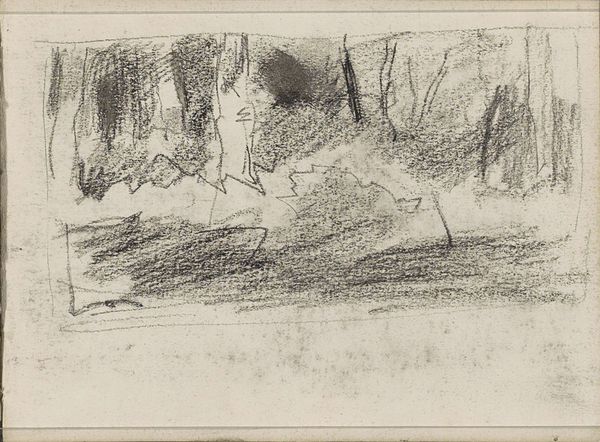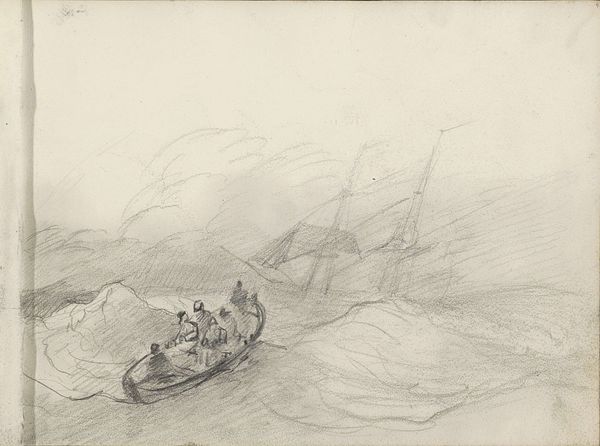
drawing, pencil
#
drawing
#
impressionism
#
pencil sketch
#
landscape
#
pencil
#
sketchbook drawing
#
post-impressionism
#
realism
Copyright: Rijks Museum: Open Domain
Editor: This is "Twee aardappelrooisters op het land" by Anton Mauve, dating from around 1886 to 1888. It's a pencil drawing, a quick sketch really. There's something about the figures bent over the land, a feeling of deep labor, almost anonymous in their task. What stands out to you? Curator: It strikes me as a poignant example of how visual art encodes memory. The potato, and the act of harvesting it, became deeply symbolic in 19th-century art. Think of Millet's "The Gleaners," or van Gogh's "The Potato Eaters," his cousin-in-law was Mauve. This simple root vegetable embodies survival, perseverance, and the realities of peasant life. The very act of sketching these laborers can be read as a kind of reverent observation. Do you notice how the sketch emphasizes the curve of their bodies, bowed down to the earth? Editor: Yes, the lines really reinforce that downward pull. It's like their bodies are becoming part of the land itself. Almost mirroring. Curator: Precisely! It's not just observation; it’s about the symbolic weight of labor, connecting humanity to the cyclical rhythm of nature. We see this symbol emerge again and again - think, for instance, of images of activists chained to trees. Or protesters turning towards the earth during times of national strife. Are there are other symbols of labor you see repeated often? Editor: The hammer and sickle come to mind, and that makes sense given their symbolic connection to the working class. This artwork is not just a depiction; it carries a cultural narrative within it. Curator: Indeed. Mauve’s sketch resonates far beyond its immediate subject. By contemplating those repeating symbols, we discover profound cultural links. Editor: I hadn't considered the broader symbolism before; it definitely adds a whole new layer to the drawing. Thank you!
Comments
No comments
Be the first to comment and join the conversation on the ultimate creative platform.
